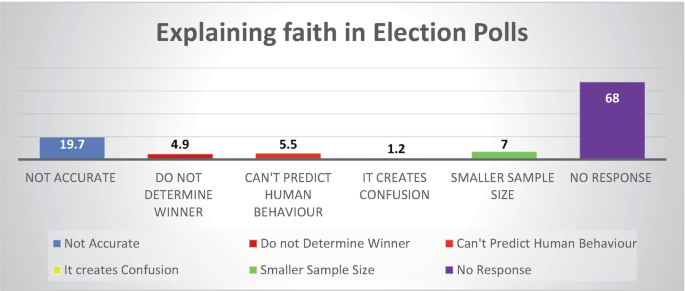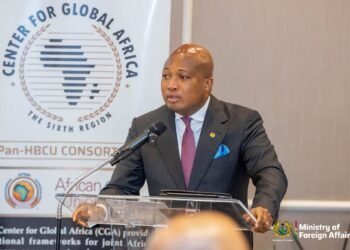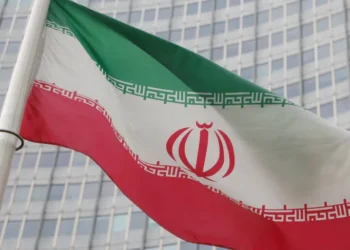An applied economist at the West African Center for Sustainable Rural Transformation Prof. Michael Ayamga has shared his critique on an election poll report that predicted a possible runoff in the upcoming elections.
Prof. Ayamaga expressed serious concerns about the validity and credibility of the report, emphasizing the need for thorough scrutiny of research methodologies before concluding. In his view, the methodology used in the report was deeply flawed and did not reflect the voting dynamics of the country.
Prof. Ayamga began by stressing the importance of examining the validity and robustness of any election poll before delving into its results. He stated:
“Usually, when you get a report like this before you even delve into discussing the results, you have to subject the report to some validity and credibility test. Is this worth your time going into it?”
Prof. Michael Ayamga an applied economist at the West African Center for Sustainable Rural Transformation
According to him, the report in question failed to meet even the most basic standards of credible research. He compared its quality to a dissertation, highlighting that it would not pass as an undergraduate thesis due to its poor methodology. He noted; “Looking at the report, it’s laughable. I just think that this wouldn’t even pass as a BST dissertation just looking at the methodology.”
Flawed Sampling and Methodological Issues
One of Prof. Ayamga’s key criticisms was directed at the poll’s sampling methodology. The report used multistage sampling, which, according to him, was poorly executed. The sample size selection was arbitrary, and there was no clear justification for how individuals were chosen for interviews.
“We are talking of an election, where you have one party doing well in two regions of winning the elections, and the others doing well in even seven or eight and still losing the elections. You go on to say you are doing multistage sampling, and you end up selecting five constituencies or electoral areas randomly.”
Prof. Michael Ayamga an applied economist at the West African Center for Sustainable Rural Transformation
Prof. Ayamga emphasized that the methodology lacked the depth and rigor required to reflect the realities of voting patterns across the country. The professor pointed out that such a flawed approach could not yield reliable results, even for a single constituency, let alone the entire country.
“Methodologically, this can’t even produce the adequate results for one constituency, let alone the contours of 276 constituencies.”
Prof. Ayamga also criticized the data presentation in the report, citing Table 2.1 as a glaring example of the inaccuracies. He noted the unrealistic distribution of voters based on employment categories, where the percentages did not align with reality, even if multiple responses were allowed.
“You have, for example, just in the male category, fishermen and farmers being 60.8%, teachers being 58.4%, traders being 26.6%, artisans being 57%. Even if you allow for multiple responses, you’re not going to come up with this.”
Prof. Michael Ayamga an applied economist at the West African Center for Sustainable Rural Transformation
Prof. Ayamga further questioned the credibility of the report, accusing the researchers of either conducting a hasty and poorly executed study or sending inexperienced assistants to gather the data. He emphasized; “I can assure you that my teaching assistants will do a better job at this than what I’m seeing. It’s laughable.”
Impact on the Political Climate
Beyond the methodological flaws, Prof. Ayamga expressed concern over the potential impact of such polls on the political climate. Prof. Ayamga argued that the release of poorly conducted polls could stir tensions and destabilize the electorate, especially when the results contradicted credible polls from other institutions.
“This poll, which has been poorly done, poorly written, and poorly presented, tends to whip up tensions and prepare the electorate for some destabilizes based on this one.”
Prof. Michael Ayamga an applied economist at the West African Center for Sustainable Rural Transformation
Prof. Ayamga also questioned the motive behind the poll, suggesting that it could be influenced by external pressures, particularly from the presidency.
“What has the presidency and others got to do with opinion polls at this point? I think that it only adds to the speculations that the presidency is trying to influence the elections one way or the other.”
Prof. Michael Ayamga an applied economist at the West African Center for Sustainable Rural Transformation
Lack of Sample Size Justification
While acknowledging that the sample size of 25,000 might appear adequate, Prof. Ayamga cautioned that the real issue lay in how the sample size was determined. He noted that a large sample size is not necessarily indicative of a robust study if the methodology is flawed.
“A small sample size can work. A big sample size may not be appropriate. I wanted to look at how they computed the sample size, and there’s nothing. The methodology in this report is about a paragraph or so… Constituencies carry weights. Some are big, some are small, some have several polling stations, and some don’t. These dynamics should be factored in even in the computation of the sample size.”
Prof. Michael Ayamga an applied economist at the West African Center for Sustainable Rural Transformation
Prof. Ayamga added that the distribution of the sample size across constituencies was poorly handled, as the report failed to account for the varying sizes and complexities of constituencies. Prof. Ayamga dismissed the poll as unreliable and not worthy of serious consideration. He reiterated that the methodology and presentation of the data were so flawed that the report should not be given any credibility. “If this is what the presidency stands for, I think we are in dangerous times.” Prof. Ayamga final remarks served as a caution to political stakeholders to ensure that credible and accurate information is used to inform the public, rather than relying on flawed and misleading reports.
READ ALSO; Ama K. Abebrese Recounts How She Got ‘Beast of No Nation’ Role


















